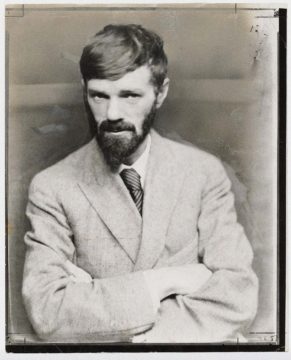A.O. Scott in The New York Times:
 It has been a hundred years since D.H. Lawrence published “Studies in Classic American Literature,” and in the annals of literary criticism the book may still claim the widest discrepancy between title and content.
It has been a hundred years since D.H. Lawrence published “Studies in Classic American Literature,” and in the annals of literary criticism the book may still claim the widest discrepancy between title and content.
Not with respect to subject matter: As advertised, this compact volume consists of essays on canonical American authors of the 18th and 19th centuries — a familiar gathering of dead white men. Some (Nathaniel Hawthorne, Herman Melville, Walt Whitman) are still household names more than a century later, while others (Hector St. John de Crèvecoeur, Richard Henry Dana Jr.) have faded into relative obscurity. By the 1950s, when American literature was fully established as a respectable field of academic study, Melville’s “Moby-Dick,” Hawthorne’s “The Scarlet Letter,” Whitman’s “Leaves of Grass” and Crèvecoeur’s “Letters From an American Farmer” had become staples of the college and grad school syllabus, which is where I and many others found them in the later decades of the 20th century. Thank goodness Lawrence got there first.
This is not going to be one of those laments about how nobody reads the great old books anymore. Not many people read them when they first appeared, either. My point is that nobody ever read them like Lawrence did — as madly, as wildly or as insightfully. That’s what I mean about the gap between the book and its title. “Studies in Classic American Literature” is as dull a phrase as any committee of professors could devise. Just try to say those five words without yawning. But look inside and you will be jolted awake.
